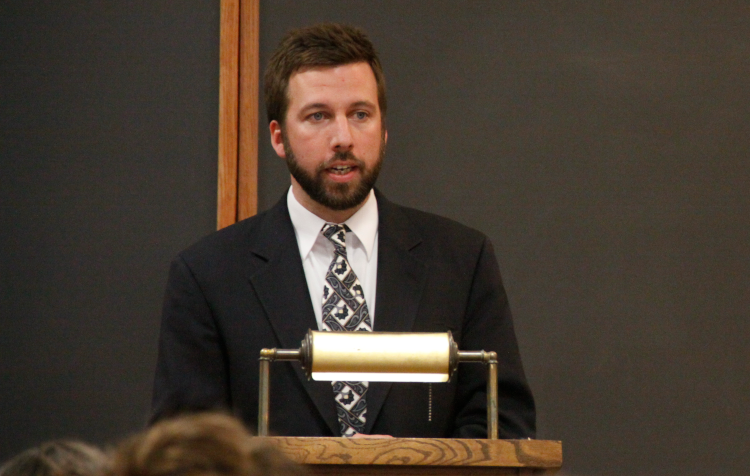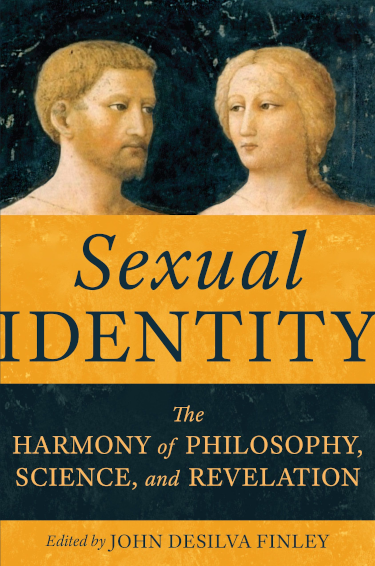- Home
-
About
 Fidelity & Excellence
Fidelity & ExcellenceThomas Aquinas College is unique among American colleges and universities, offering a faithfully Catholic education comprised entirely of the Great Books and classroom discussions.
-
A Liberating Education
 Truth Matters
Truth MattersTruth, and nothing less, sets men free; and because truth is both natural and supernatural, the College’s curriculum aims at both natural and divine wisdom.
-
A Catholic Life
 Under the Light of Faith
Under the Light of FaithThe intellectual tradition and moral teachings of the Catholic Church infuse the whole life of Thomas Aquinas College, illuminating the curriculum and the community alike.
-
Admission & Aid
 Is TAC Right for You?
Is TAC Right for You?Do you enjoy grappling with complex questions? Are you willing to engage in discussions about difficult concepts, with the truth as your ultimate goal?
-
Students & Parents
 Mind, Body & Spirit
Mind, Body & SpiritThere is always something to do at TAC — something worthwhile, something fulfilling, and something geared toward ever-greater spiritual and intellectual growth.
-
Alumni & Careers
 What Can You Do with a Liberal Education?
What Can You Do with a Liberal Education?Nothing speaks more to the versatility of the College’s academic program than the good that our alumni are doing throughout the Church and the world.
- Search
- Giving
Alumnus Scholar Publishes Much-Needed Book on Sexual Identity

When Judge Ketanji Brown Jackson — widely celebrated for being the first black woman appointed to the U.S. Supreme Court — said she could not define the word “woman” during her confirmation hearings, the episode brought into sharp relief, yet again, the West’s growing and deep confusion about matters of sexual identity. The evidence is ubiquitous, from male athletes dominating in women’s sports, to the burgeoning multiplicity of pronouns, to nursing mothers professing to be men. Indeed, the court over which Judge Jackson will soon preside not too long ago declared the categories of “male” and “female” irrelevant to the institution of marriage.
In a short time, gender ideology has made the transition from a fringe academic theory to assumed truth throughout much of the media, government, and business world. The tem “gender” itself has come to take on an amorphous definition containing an infinite number of possibilities, and words such as “man” and “woman” are widely regarded as little more than preferred forms of self-expression, if not wholly obsolete.
“It’s unfortunate that the world has come to the point of needing a thorough and scholarly defense of the fact that men and women are different,” writes Catholic author and apologist Jason Everett. But “such a resource is now available.”
 That resource is Sexual Identity: The Harmony of Philosophy, Science, and Revelation, an interdisciplinary collection of essays written by experts for non-specialists, intended to bring about some much-needed clarity during these befuddled times. Its editor is Dr. John DeSilva Finley (’99), a Thomas Aquinas College alumnus and professor of philosophy at Kenrick-Glennon Seminary in St. Louis. The work draws upon the biological, psychological, philosophical, and theological sciences to charitably recall audiences to the truth that God “made them male and female.”
That resource is Sexual Identity: The Harmony of Philosophy, Science, and Revelation, an interdisciplinary collection of essays written by experts for non-specialists, intended to bring about some much-needed clarity during these befuddled times. Its editor is Dr. John DeSilva Finley (’99), a Thomas Aquinas College alumnus and professor of philosophy at Kenrick-Glennon Seminary in St. Louis. The work draws upon the biological, psychological, philosophical, and theological sciences to charitably recall audiences to the truth that God “made them male and female.”
The essayists featured in Sexual Identity are highly acclaimed professionals in their fields — philosophy, obstetrics and gynecology, endocrinology, psychology, plastic surgery, and theology — who have spoken nationally and internationally on matters pertaining to the meaning of sexuality. One is another Thomas Aquinas College graduate, Cara Buskmiller, M.D. (’11), a fellow in maternal-fetal medicine at the University of Texas Health Science Center.
A onetime member of the TAC teaching faculty, Dr. Finley earned his doctorate at the University of Dallas and is a member of the Aquinas Institute at Blackfriars Hall, University of Oxford. He has lectured and published widely on the nature of the human person, sexuality, and the thought of St. Thomas Aquinas. In 2017, the John Templeton Foundation awarded him a grant to pursue interdisciplinary research on philosophy, science, and gender. This summer he will be leaving St. Louis for California, where he will become the academic director at a new educational enterprise, the Valor Institute in San Diego. He and his wife, Hilary, are the parents of three children.
Graciously, Dr. Finley credits his alma mater for providing him with “much of this book’s interdisciplinary vision” in Sexual Identity’s acknowledgments. “The character of this book harkens directly back to that interdisciplinary vison,” he says. “I really think that this kind of approach is going to be more and more crucial, because our tremendous advances in scientific discovery have in some ways outstripped corresponding emphases and developments in some of the other disciplines, especially those considered the humanities — philosophy, literature, theology, and so on.”
Although still awaiting its public release, Sexual Identity: The Harmony of Philosophy, Science, and Revelation is available for pre-order through Emmaus Road Publishing. “This book is essential reading for anyone concerned about the truth of our embodiment as male and female and how to promote that truth in our confused era,” writes Ryan T. Anderson, president of the Ethics and Public Policy Center. “The contributors are leading experts in their respective fields who write with authority and compassion, and the result is a one-of-a-kind, interdisciplinary defense of vital truths about the human person.”

